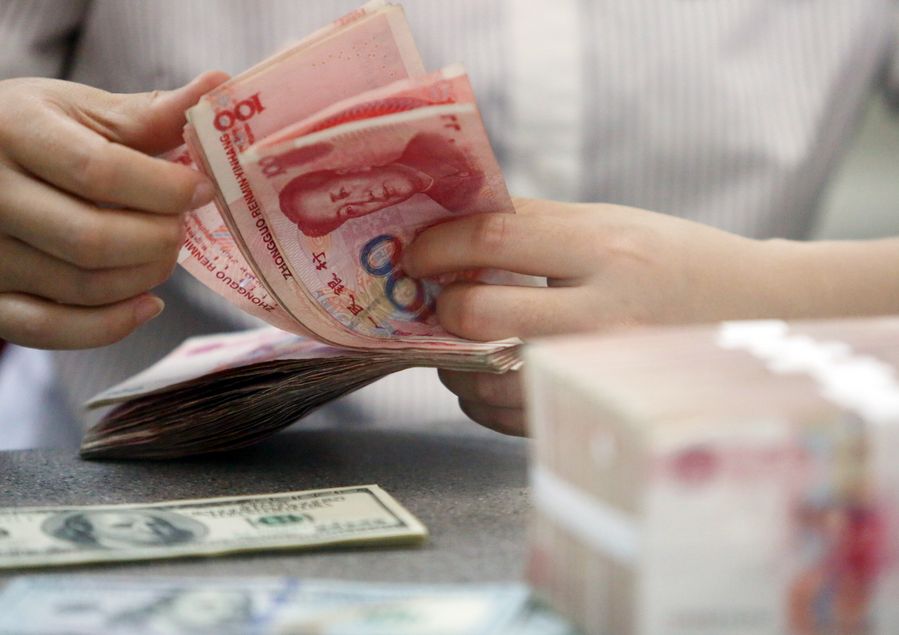China's monetary authority may not cut policy rates this year, although monetary easing is going on in other major economies to contain coronavirus risks, according to a policy adviser and a former member of the central bank's monetary policy committee.

A worker counts Chinese currency Renminbi (RMB) at a bank in Linyi, east China's Shandong Province. (File Photo: Xinhua)
"It is likely that the central bank will maintain a stable level of interest rates this year, without proactively cutting the policy rates," said Li Daokui, a member of the 13th National Committee of the Chinese People's Political Consultative Conference. "The market rates may decline moderately, as the authorities will continue to inject liquidity and keep it at an adaptive level."
That means the country's monetary policy will not be tightened sharply, as enterprises with high debt need liquidity to avoid defaults, said Li, who is dean of the Academic Center for Chinese Economic Practice and Thinking at Tsinghua University in Beijing.
A sharp tightening of monetary policy elsewhere amid the pandemic could lead to bankruptcies, so while many major economies are extending stimulus measures to inject huge liquidity into the global market, China must prepare for spillover effects, Li said.
The annual Government Work Report, delivered by Premier Li Keqiang on March 5 to the National People's Congress, made it clear that this year's prudent monetary policy will be "flexible and targeted", which will give greater priority to serving the real economy, balancing the needs of promoting economic recovery and preventing risks.
The report highlighted the need to maintain a proper and adequate level of liquidity, and keep the macro leverage ratio-covering household, government and corporate debt-generally stable. Further steps will be taken to address the financing difficulties of micro-sized and small enterprises. Policy tools for relending and rediscounting will be adopted to support loans, and those to micro-sized and small businesses issued by large commercial banks will increase by more than 30 percent this year.
Li Daokui said financing measures for the property sector should be changed from the current situation of relying too much on short-term financing and bank lending, but he expected that the policy stance may not be tightened, for the sake of avoiding risks.
China's economy in 2021 could be "a year of harvest", he said, because it is the first year of the 14th Five-Year Plan (2021-25) period, and a lot of programs will be put in place, providing stimulus for overall growth. Meanwhile, the overall international economy will be in much better shape than last year, he added.
He said he expected China to completely open its financial market in the next five years and allow access to all types of financial services from overseas.
Along with financial market opening-up, the renminbi exchange rate may see more flexible floats, but it may take longer to see the completely free exchange of the currency and cross-border capital flows, Li Daokui added.
"The opening up of the capital account will be step-by-step, as financial regulators still remain cautious on monitoring capital flows to avoid unexpected fluctuations," he said.
The government stressed keeping the macro leverage ratio generally stable this year, and local governments will issue fewer special-purpose bonds. But the scope of use for such bonds will be expanded as appropriate, with priority given to funding for key projects already under construction.
Fiscal policy will turn to being moderately contractionary, compared with 2020. But fiscal revenue is likely to rise, given the economic recovery, Li Daokui said.


